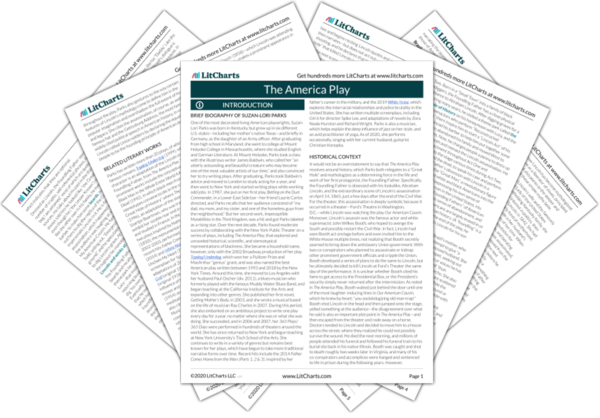As the dead send her secrets too powerful to retell, Lucy again falls back into her role as a “Confidence,” reaffirming both the fact that the dead have messages for the living and the idea that not everything will be available to the audience, who have to fill in the gaps in the narrative on their own. Tellingly, however, she follows this by again listing some of the seemingly countless and deeply personal things that the Foundling Father took away from her—beyond suggesting that their relationship was somehow abusive, she also shows that it deprived her of her very own identity, instead turning her into a derivative of him (just as he became a derivative of Lincoln). In addition to disrupting the medium of theater and comically juxtaposing the old-timey figure of Abraham Lincoln with modern technology, the “Tee-Vee” makes a clear comment on the tenuous relationship between representation and reality: the Foundling Father somehow feels less “real” on the television than he was on the stage, which may be unsettling for an audience that just saw him in the flesh.
